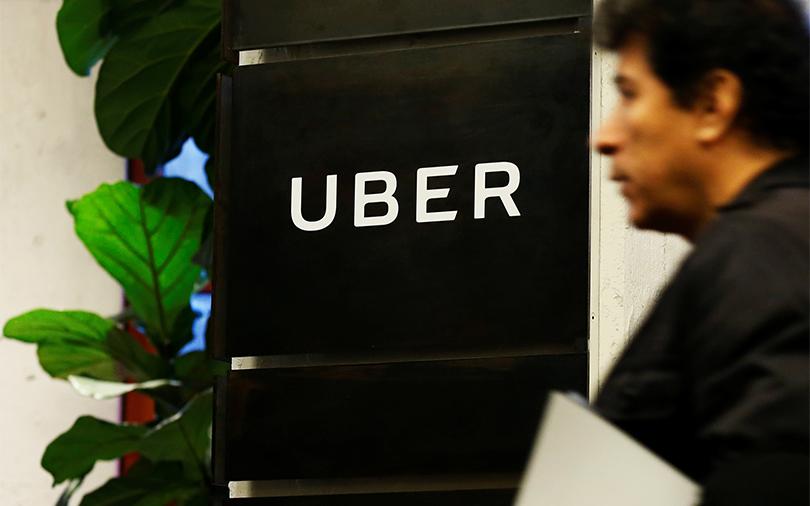The battle lines in the cab-hailing market worldwide are being redrawn. And Uber Technologies Inc, the industry pioneer and the world’s most valuable startup, appears to be getting tired of the bloodshed.
Just last week, the US cab-hailing giant agreed to merge its operations in Russia and five neighbouring countries with local market leader Yandex. The deal comes less than a year after Uber sold its China business to local rival Didi Chuxing and marks its second exit from a large market as it seeks to cut losses after breakneck expansion.
News of the Russian deal was followed by reports that some Uber shareholders were in talks to sell their stake to Japanese Internet and telecom conglomerate SoftBank Group Corp.
This has set tongues wagging in India, Uber’s second-largest market after the US and where it competes against SoftBank-backed Ola.
SoftBank has denied any plan to buy a stake in Uber. On its part, San Francisco-based Uber has clarified that the Russian merger did not indicate a strategy shift, implying it was unlikely that the company will retreat from markets where it was not the dominant player.
But that’s probably not enough to allay doubts about the ride-hailing company that is valued around $70 billion but is leaking money heavily courtesy of a fierce battle with homegrown competitors.
That’s also probably not enough to stop speculation about SoftBank, which has just raised $93 billion to back tech companies and which has identified India as one of its key markets. SoftBank has also backed Didi Chuxing and Grab, Southeast Asia’s top ride-hailing company.
SoftBank's consolidation moves
After pumping about $2 billion into India's consumer internet ventures, the Japanese investor is looking to assume a more active role at the country's leading startups. A case in point is the planned merger between e-tailer Snapdeal, its biggest investment in India, and bigger rival Flipkart, which SoftBank is orchestrating.
Besides, armed with his $93-billion technology fund, SoftBank chairman and CEO Masayoshi Son is looking to acquire significant stakes in market leaders across online retail, online grocery and payments in India.
With Uber’s investors looking to cut losses and SoftBank inclined towards consolidation, is there a possibility it may invest in the world’s foremost taxi-hailing company? Or, will it go a step further and drive long-term consolidation in India's app-based taxi market, engineering a merger of arch-rivals Ola and Uber?
Arvind Singhal, chairman of retail consultancy Technopak, says he wouldn’t be surprised if such a deal happens. “Theoretically, it is possible because Uber has done the same in China and Russia. As far as SoftBank’s move is concerned, some of their investments can be syndicated with someone else's,†he says.
Though industry observers feel Ola has a lead over Uber in terms of market share, both have burned huge amounts of cash to best each other. Neither company seems to have figured out an organic strategy to win market share.
Discounting and driver incentives, though lower than in the past, continue to be the mainstay of their game plan.
Ola saw its losses widen three-fold in the financial year through March 2016. It posted a consolidated net loss of Rs 2,311.7 crore for FY16 compared with Rs 796 crore in FY15. Total expenditure surged more than three-fold to Rs 3,078.19 crore from Rs 899.7 crore the year before, indicating higher cash burn.
As a result, Ola has been drawing copious amounts of capital from SoftBank's coffers. The homegrown cab-hailing company recently raised $250 million from the Japanese investor, making it the biggest shareholder in the company.
According to VCCircle's last year estimates, SoftBank held a 22.5% stake in Ola, followed by Tiger Global at 20.5%.
Satish Meena, analyst at Forrester Research, feels SoftBank’s confidence in its Indian portfolio looks shaky.
"SoftBank’s reported plan to invest in Uber could be a result of this and it’s possible that SoftBank would push for consolidation in future,†he says.
India critical for Uber
While Uber’s India numbers are unavailable, the company has been making losses globally. Its 2016 net revenue stood at $6.5 billion while adjusted net losses were $2.8 billion.
The taxi-hailing company has committed to the country the chunk of the $3.5 billion it raised from Saudi Arabia’s Public Investment Fund last year. It also infused Rs 51.64 crore into its Indian arms in May, documents filed with the Ministry of Corporate Affairs show.
Meena says China and Russia are not the best markets to operate for US companies, which are much more comfortable doing business in India. Also, Uber is facing a much tougher challenge in Southeast Asia than India.
“We can expect some deal there (in Southeast Asia), but in India, without SoftBank’s involvement, I don’t see Uber merging with Ola. Uber still believes it can win the market eventually, because the gap is small,†Meena says.
However, an investment by SoftBank into Uber cannot be ruled out.
"It is a strong possibility as SoftBank wouldn’t want to miss out on a promising segment like cab-hailing," he adds.
Maelstrom at Uber
Meanwhile, Uber is going through what's inarguably the deepest crisis in the company's history. Late last month, co-founder and CEO Travis Kalanick stepped down in the face of mounting pressure from investors.
Kalanick’s move came after US Attorney General Eric Holder ran an investigation into the company’s culture and practices, after a former female employee publicly accused it of promoting sexual harassment by often looking the other way.
Since February, Uber has lost or sacked over a dozen senior executives after a law firm investigated 215 cases of sexual harassment, discrimination, and bullying at the company. Around the same time, Emil Michael and Eric Alexander, two of Uber’s top employees reportedly close to Kalanick, also resigned. While Michael courted controversy in 2014 over remarks about prying into the private lives of journalists, Alexander got the sack after a media report said he had mishandled the rape case of an Uber passenger in Delhi.
Uber has also been in a legal tangle with Waymo, Google’s self-driving car unit, over intellectual property theft.
Waymo has accused Uber of stealing trade secrets and infringing on patents of its self-driving programme.
Following the turbulence in its top ranks, questions have emerged around Uber’s India plans, with some media reports going so far as to say that the company will put its expansion here on the back burner.
However, Uber India president Amit Jain has dismissed such concerns. He told Mint recently that the company would continue to invest in India with the same commitment and Kalanick’s exit would have no effect on it. Besides, he claimed that Uber India had grown two-and-a-half times (both by trips and gross merchandise volume) since June last year.
Time to be pragmatic?
Singhal feels that in markets where there’s a strong local player, Uber would attempt some sort of strategic partnership and investment. In markets where it has a clear shot at the top position, it would want to become the leader.
“In the Middle East, Careem seems to be doing reasonably well. Uber might look at such markets to partner a strong player. It will still have its skin in the game via its investments,†he explains.
In fact, forging tactical partnerships, instead of chasing market superiority, is Uber's key learning from China, where the race with Didi Chuxing reportedly cost it $1 billion a year.
It would do well to not repeat the mistake.
Legal hurdles to merger
In March last year, SoftBank had claimed that Ola controlled about 85% of India's app-based taxi market. Uber's Jain had rubbished the claim and said Uber was as big as Ola, holding about 50% of the market in terms of completed trips.
Even as the two companies continue to spar over market share figures, what cannot be denied is, together, the two will have a monopoly in the market. That means, a potential deal between the two is likely to come under the Competition Commission of India’s (CCI) scanner.
“While competition analysis depends on a lot of factors, CCI may primarily look at their combined market share and the level of competition in each geography where they operate,†says Vaibhav Choukse, partner, competition law, J Sagar Associates. “Based on that, the CCI can either approve, block or give conditional approval to the deal. Till date, the CCI has not blocked any deal.â€
Data from consultancy firm RedSeer show the two companies carried out approximately 500 million rides in 2016, up almost four-fold from 130 million in 2015.
Sharanya G Ranga, partner at commercial law firm Advaya Legal, feels monopoly by itself is not a violation of law. It will be a concern only when there is an abuse of dominant position and a business deal has an adverse effect on competition, she says.
“The question is, how will one determine the relevant market for app-based taxi aggregators? Is the relevant market one where people use mobile apps to book taxis, centred around a few cities? That can be tricky and will have to be examined considering the market size, market share of the acquirer and target, and other features unique to app-based aggregators,†she adds.







